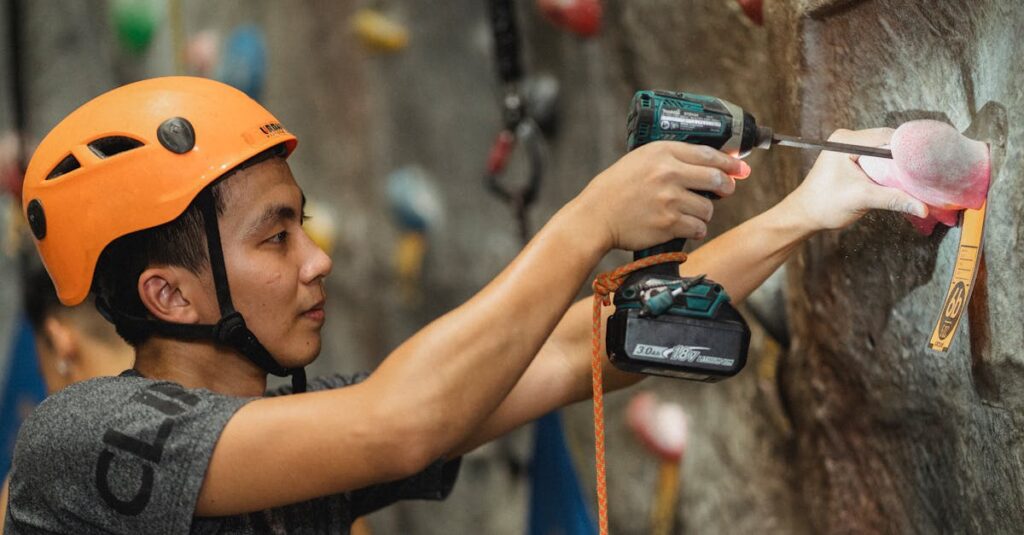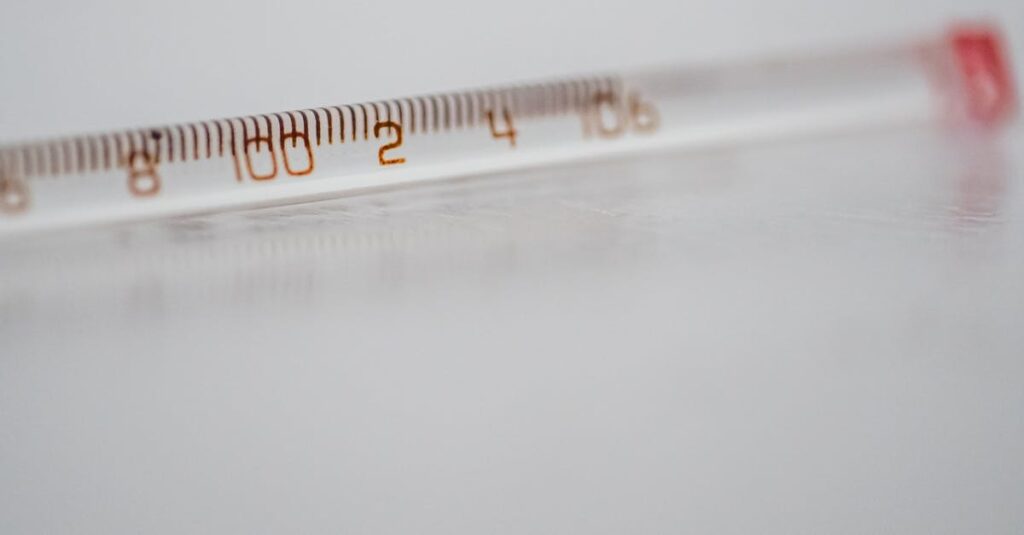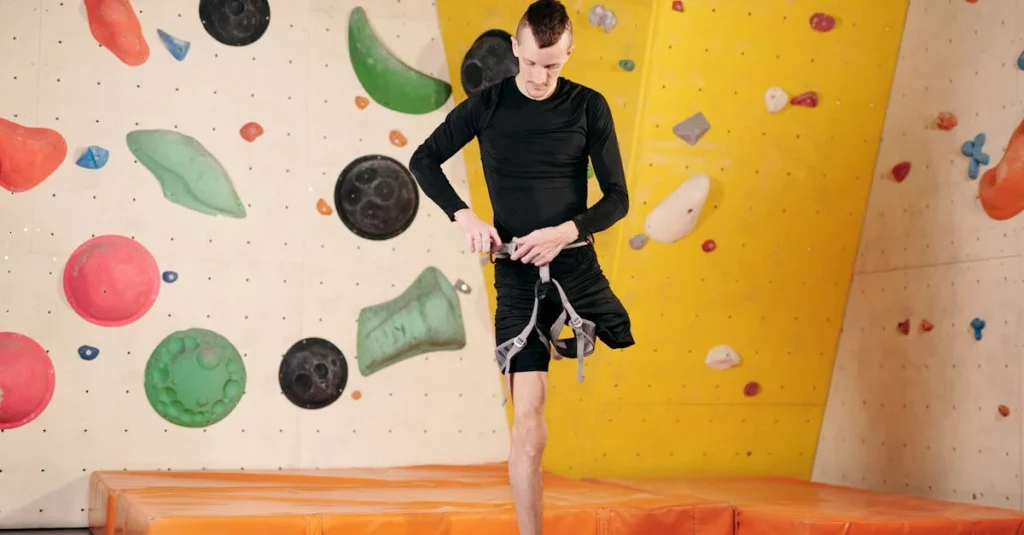Sport science jobs are where passion meets profession, blending the love of athletics with the science of performance. Imagine waking up every day to analyze how athletes can jump higher, run faster, and maybe even do backflips without landing on their faces. It’s not just a job; it’s a front-row seat to the fascinating world of human potential.
From biomechanics to nutrition, sport science offers a buffet of career paths that cater to every interest. Whether it’s working with elite athletes or helping weekend warriors avoid injury, there’s a role for everyone. So if you’re ready to turn your enthusiasm for sports into a career that’s as exciting as a last-minute game-winning shot, sport science might just be your ticket to the big leagues.
Sport Science Jobs
Sport science jobs encompass a range of roles focused on improving athletic performance through scientific principles. These positions attract individuals passionate about sports and research, offering fulfilling career paths.
Definition of Sport Science
Sport science refers to the study of various scientific domains as they apply to physical activity and sports. This field integrates knowledge from exercise physiology, biomechanics, nutrition, psychology, and more. Professionals in sport science utilize this knowledge to analyze and enhance athletic performance. Courses and programs in this field equip students with critical skills essential for assessing and improving training practices, recovery methods, and overall wellness.
Importance in the Athletic World
The importance of sport science in the athletic world cannot be overstated. Enhanced performance through scientific advancements leads to safer training techniques and injury prevention strategies. Athletes benefit from tailored nutrition plans and psychological support designed to boost focus and resilience. Coaches utilize sport science insights to optimize training regimens. Research initiatives in this field directly contribute to the development of innovative tools and technologies that improve competitiveness across various sports.
Types of Sport Science Jobs
Sport science offers a variety of career paths, each focusing on different aspects of athletic performance and well-being.
Performance Analyst
A performance analyst evaluates athletes’ techniques and skills. This professional uses video analysis, statistical software, and performance metrics to identify strengths and weaknesses. They compile reports that inform coaches and athletes about improvement areas. Working closely with teams, performance analysts ensure that strategies align with training goals. They may also track athlete progress over time, contributing to tailored training programs. Communication skills are essential for translating complex data into actionable insights.
Sports Nutritionist
A sports nutritionist specializes in developing dietary plans for athletes. This role involves creating nutrition strategies that enhance performance and support recovery. They assess individual dietary needs based on training demands and health goals. Sports nutritionists educate athletes about the impacts of food choices on their performance. Additionally, they stay updated on nutritional research to provide evidence-based advice. Collaboration with coaches ensures that nutrition plans fit seamlessly into training regimens.
Exercise Physiologist
An exercise physiologist focuses on the body’s responses to physical activity. This professional conducts fitness assessments to establish baseline metrics for athletes. They design exercise programs tailored to improve strength, endurance, and flexibility. Monitoring an athlete’s progress forms a crucial part of their role. Exercise physiologists often work with injury rehabilitation, ensuring athletes return safely to their sport. Scientific knowledge underpins their approach, allowing for effective strategies that maximize performance while minimizing injury risks.
Required Skills and Qualifications
Skills and qualifications are essential for pursuing a career in sport science. Candidates typically need a mix of educational credentials, certifications, and practical experience to succeed in this competitive field.
Educational Background
A bachelor’s degree in sport science or a related discipline serves as the foundation for most roles. Graduates often specialize in fields like exercise physiology, biomechanics, or sports nutrition. Advanced degrees, such as master’s or doctorates, may provide an edge for research or teaching positions. Relevant coursework should cover topics like human anatomy, physiology, and biomechanics. Experience gained through internships or hands-on training can significantly enhance a candidate’s profile, preparing them for the challenges in the sport science sector.
Certifications and Licenses
Employers often look for specific certifications to verify a candidate’s expertise. Certifications from organizations such as the National Strength and Conditioning Association or the American College of Sports Medicine demonstrate a commitment to professional standards. Each certification generally requires passing an exam and may include continuing education to maintain status. Specific roles, such as exercise physiologists, may necessitate state licensures. Certifications not only validate practical skills but also signal dedication to ongoing professional development within the dynamic field of sport science.
Career Opportunities in Sport Science
Sport science offers a variety of career opportunities across different sectors. Each sector plays a distinct role in enhancing athletic performance and overall well-being.
Professional Sports Teams
Professional sports teams rely on sport science to gain competitive advantages. Specialists work closely with athletes, focusing on performance analysis, injury prevention, and rehabilitation. These roles include exercise physiologists and nutritionists who create tailored training programs and dietary strategies. Coaches benefit from data-driven insights to refine game tactics. Athletes receive personalized support that optimizes their performance and fosters career longevity.
Academic Institutions
Academic institutions provide vital education and research in sport science. Faculty positions often focus on teaching students about exercise physiology, biomechanics, and sports nutrition. Universities frequently emphasize interdisciplinary approaches, integrating knowledge from various scientific fields. Graduates play key roles as researchers, contributing to advancements in physical activity and health. Collaboration with local sports organizations enhances practical skills and instills a strong foundation for students.
Research Organizations
Research organizations explore innovative sport science methodologies. Professionals focus on studying human performance, injury mechanisms, and rehabilitation techniques. Collaborations with universities and sports teams often lead to groundbreaking studies that influence training practices. Grants and funding support cutting-edge research projects aimed at improving athletic outcomes. Contributions from researchers help shape the future of sports science, ensuring continued advancements in the field.
The Future of Sport Science Jobs
The future of sport science jobs promises exciting developments and opportunities. Emerging trends enhance the field significantly, signaling the importance of technology and data analytics.
Emerging Trends
Technology integration stands at the forefront of sport science. Wearable devices track performance metrics in real-time, providing immediate feedback to athletes and coaches. Artificial intelligence analyzes performance patterns, offering personalized training recommendations. Additionally, the focus on mental well-being and sports psychology grows, with professionals addressing athletes’ mental health alongside physical health. The rise of virtual training platforms enables remote coaching and education, expanding access to sport science expertise. These trends not only optimize athlete performance but also contribute to a holistic approach in the field.
Job Market Outlook
The job market for sport science continues to expand. According to the Bureau of Labor Statistics, employment in related fields is projected to grow by 11% from 2020 to 2030, faster than average for all occupations. Growth in professional sports, fitness centers, and wellness programs drives demand for qualified professionals. Companies increasingly recognize the value of sport science for improving athlete performance and injury prevention. Collaboration across various sectors generates diverse roles, ensuring opportunities for specialists in performance analysis, nutrition, and exercise physiology. The increasing emphasis on athlete safety and performance optimization cements sport science as a vital profession in the athletic landscape.
Exercise Physiologist
Sport science jobs offer a unique blend of passion and expertise that contributes significantly to the world of athletics. With a variety of roles available professionals can find fulfilling careers that align with their interests while making a real impact on athlete performance and well-being. As technology continues to evolve the opportunities within this field will only expand further.
The increasing demand for skilled practitioners ensures that those entering the field will find a wealth of prospects. For anyone considering a career in sport science it’s an exciting time to engage with a discipline that’s reshaping how athletes train and compete. Embracing this journey can lead to a rewarding career dedicated to enhancing human potential through science and innovation.



